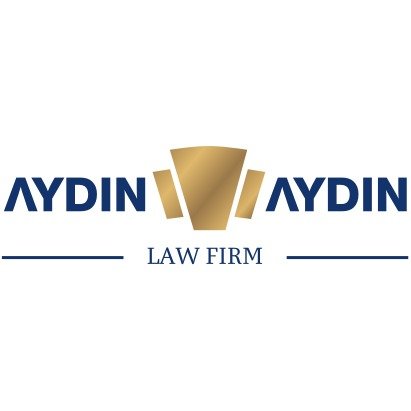Best Structured Finance Lawyers in Ankara
Share your needs with us, get contacted by law firms.
Free. Takes 2 min.
List of the best lawyers in Ankara, Turkey
About Structured Finance Law in Ankara, Turkey
Structured finance is a complex area of finance that involves the pooling of financial assets and the subsequent issuance of securities backed by those assets. In Ankara, Turkey, structured finance is increasingly being adopted by corporations, banks, and financial institutions to manage risk, raise capital, and access new sources of funding. Transactions often include asset-backed securities, securitizations, derivatives, and syndicated loans. Legal regulation of these transactions is primarily based on Turkish commercial, banking, and capital markets legislation, along with specific guidelines and regulations from local authorities such as the Capital Markets Board of Turkey.
Why You May Need a Lawyer
Engaging in structured finance transactions in Ankara can present significant legal complexities. Here are some common situations where individuals or organizations may require legal assistance:
- Structuring and drafting documentation for asset backed securities or syndicated loans
- Compliance with stringent regulatory requirements from financial authorities
- Negotiating with investors, issuers, and other stakeholders
- Mitigating legal risks in cross-border transactions
- Disputes related to defaults or enforcement of securities
- Tax planning and due diligence for structured finance deals
- Obtaining necessary licenses, approvals, and regulatory clearances
Local Laws Overview
The legal framework governing structured finance in Ankara, Turkey, primarily includes several key laws and regulations:
- Turkish Commercial Code (TCC): Sets out corporate structures, partnership rules, and company obligations relevant to many finance deals.
- Capital Markets Law: Provides the legal basis for securitizations, public offerings, and the trading of securities.
- The Banking Law: Regulates the lending and borrowing practices of banks, which are instrumental in structured finance transactions.
- Regulations by the Capital Markets Board of Turkey (CMB): CMB issues specific rules on asset-backed securities, covered bonds, and disclosure requirements.
- Tax Legislation: Defines the tax implications for structuring finance deals, including witholding taxes, VAT, and stamp duties.
Frequently Asked Questions
What is structured finance and how is it used in Turkey?
Structured finance involves creating financial products tailored to specific needs by pooling assets and using them as collateral to issue securities. In Turkey, this is often used for raising capital, risk management, and restructuring debt.
What types of assets are commonly securitized in Ankara?
Common assets include mortgages, trade receivables, auto loans, and equipment leases. The nature of securitized assets depends on the business sector and investor appetite.
What regulatory bodies oversee structured finance transactions in Ankara?
The main regulatory bodies include the Capital Markets Board of Turkey and the Banking Regulation and Supervision Agency. The Ministry of Treasury and Finance may also be involved.
Are there restrictions on foreign investment in structured finance deals?
While foreign investment is generally permitted, certain structured finance deals may require approvals, particularly if they involve sensitive sectors or cross-border money transfers.
What documentation is required for a securitization in Ankara?
Typical documentation includes offering circulars, trust agreements, servicing agreements, and legal opinions as mandated by Turkish law and the CMB regulations.
What are the main legal risks in Turkish structured finance?
Key risks include regulatory noncompliance, enforceability of contracts, counterparty risk, changes in tax law, and the potential for litigation.
How are defaults or disputes resolved in a structured finance context?
Disputes usually fall under Turkish commercial law jurisdiction, although arbitration is sometimes used. Enforcement typically follows the procedures in the Turkish Enforcement and Bankruptcy Law.
What taxes are involved in structured finance transactions in Turkey?
Relevant taxes include stamp duty, value-added tax (VAT), and witholding taxes, depending on the transaction structure and type of security issued.
How does Turkish law deal with cross-border structured finance?
Cross-border deals require careful attention to foreign exchange laws, taxation, and compliance with both Turkish and international regulations governing such transactions.
Why is due diligence important in structured finance?
Due diligence helps identify legal, financial, and operational risks in any structured finance deal. It is crucial for investor confidence and for meeting regulatory requirements in Ankara, Turkey.
Additional Resources
Consider consulting reputable sources for further information and assistance regarding structured finance in Ankara:
- Capital Markets Board of Turkey (Sermaye Piyasası Kurulu)
- Banking Regulation and Supervision Agency (Bankacılık Düzenleme ve Denetleme Kurumu)
- Ministry of Treasury and Finance
- Ankara Bar Association (Ankara Barosu) for legal referrals
- Official Gazette of the Republic of Turkey for recently published laws and regulations
Next Steps
If you require legal assistance with structured finance in Ankara, Turkey, here are practical steps to follow:
- Assess your needs and clarify the nature of your structured finance project or issue
- Gather all relevant documentation such as contracts, business plans, and correspondence
- Consider reaching out to a licensed attorney specializing in banking and finance law in Ankara
- Schedule a consultation to discuss your case, compliance requirements, and possible risks
- Check the credentials and experience of your chosen legal counsel in structured finance matters
- Maintain clear and open communication throughout the transaction or dispute process
Lawzana helps you find the best lawyers and law firms in Ankara through a curated and pre-screened list of qualified legal professionals. Our platform offers rankings and detailed profiles of attorneys and law firms, allowing you to compare based on practice areas, including Structured Finance, experience, and client feedback.
Each profile includes a description of the firm's areas of practice, client reviews, team members and partners, year of establishment, spoken languages, office locations, contact information, social media presence, and any published articles or resources. Most firms on our platform speak English and are experienced in both local and international legal matters.
Get a quote from top-rated law firms in Ankara, Turkey — quickly, securely, and without unnecessary hassle.
Disclaimer:
The information provided on this page is for general informational purposes only and does not constitute legal advice. While we strive to ensure the accuracy and relevance of the content, legal information may change over time, and interpretations of the law can vary. You should always consult with a qualified legal professional for advice specific to your situation.
We disclaim all liability for actions taken or not taken based on the content of this page. If you believe any information is incorrect or outdated, please contact us, and we will review and update it where appropriate.













